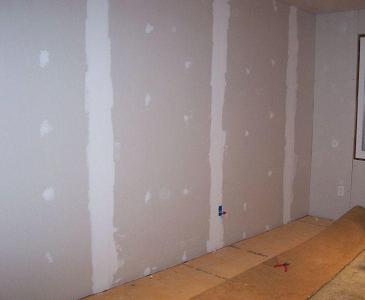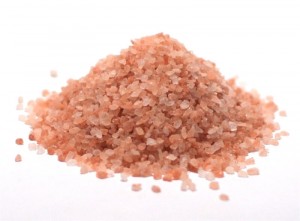
Since 2006, people who had recently used drywall sourced from China in home building or remodeling have been complaining of a foul odor in their home, various health problems – including some severe respiratory problems, as well as mysterious electrical failures in their homes.
The problem has been traced back to certain drywall imported from China between 2001 and 2007. The head federal agency in the drywall investigation – the Consumer Product Safety Commission – had received complaints from over 3,500 homeowners in 38 states. Many complaints have originated from the Gulf Coast (following massive home rebuilding subsequent to Hurricane Katrina) and Florida. Homes built by Habitat for Humanity have been affected, as well as homes privately built and sold for well over $500,000.
The odor is described as having a “rotten eggs” smell – an odor specifically linked to the presence of high amounts of sulfur gas (egg yolks are naturally high in sulfur). The most prevalent theory as to the specific source of that sulfur is that it is originating from gypsum, a common mineral and the main component of drywall, that has been mined from areas where the gypsum mineral has especially high amounts of sulfur. Usually, once discovered, these mines are abandoned and other gypsum sources are pursued.
High amounts of sulfur gas in the air can be very irritating to mucus membrane tissues of the body – burning eyes, nosebleeds, impaired breathing have all been reported, as well as headaches and difficulty sleeping. At least one individual was said to have respiratory distress severe enough that she needed to wear an industrial respirator while inside her own home (which she and her husband had built after saving money for 37 years).
This sulfur gas can also cause corroding of wires and damaged electrical equipment. Homeowners have discovered that the foul air has resulted in failure of air conditioners, computers, televisions, dishwashers, and smoke detectors, as well as corroded electrical wiring throughout the home.
Warning signs of tainted drywall (Source: Florida State Department of Health):
- The home was built, repaired or renovated more recently than 2000
- Copper air conditioning coil(s) turned black, or AC evaporator coils have failed multiple times recently and needed replacing
- Blackening or sulfur-like corrosion on electrical wires, copper pipes, jewelry, metallic bathroom fixtures or other metal components in the home
- Markings on the back of the drywall indicating the wallboard is from China
- House smells like sulfur
The Florida Department of Health has postings on many of the problems associated with the tainted drywall, including some photos of corroded wiring and copper pipes.
Another interesting (to me, at least) theory about the source of the sulfur smell is that the drywall could contain bacteria (possibly from the water source used to manufacture the drywall) that are degrading iron and sulfur compounds within the gypsum to produce large amounts of sulfur gas. There is a category of bacteria known as sulfate-reducing bacteria or SRB. These bacteria break down sulfur-containing substances and, in the process, produce varying amounts of sulfur gas. In fact, many of us harbor these bacteria within our own intestinal ecosystems. Under certain conditions, we may in fact produce undesirable levels of sulfur gas within our intestines – which, when released into the environment, can result in the detectable odor of “rotten eggs.”
In a report prepared earlier this year for the U.S. Consumer Product Safety Commission, however, this theory appears to have been disputed.
The Consumer Product Safety Commission also recently issued guidelines advising builders and homeowners to remove and replace all Chinese drywall – which effectively means that the affected homes will need to be gutted. According to the agency, the electrical systems also need to be removed and replaced due to the fire risk involved.
There has been much litigation involving this issue, but homeowners are apparently not being financially compensated, for the most part. Home inspectors and home repair “specialists” have been appearing on the scene in increasing numbers to take advantage of this situation. If you have been affected, you are strongly encouraged to thoroughly check out the credentials of any home inspection or home remodeling business that you deal with.




